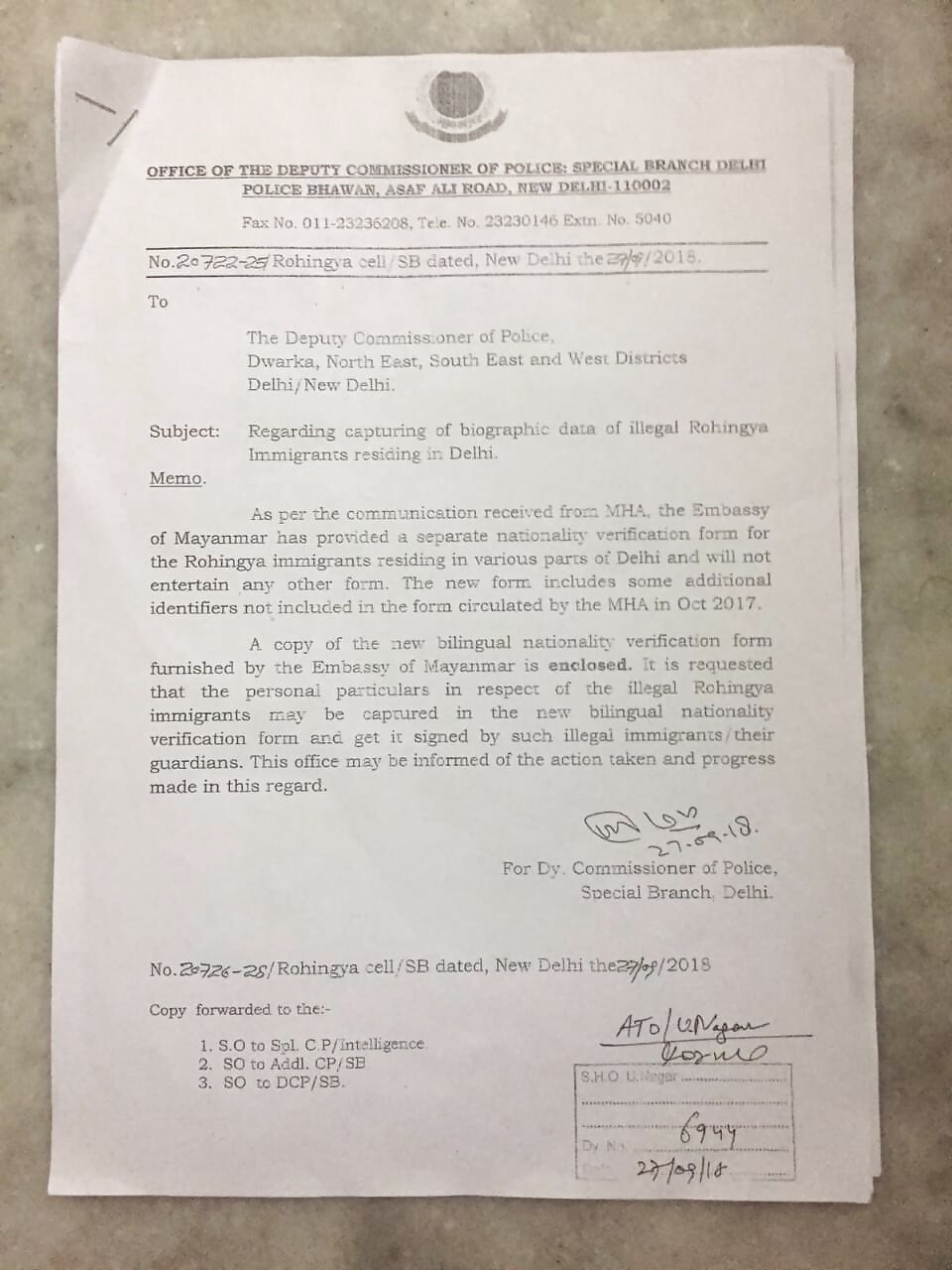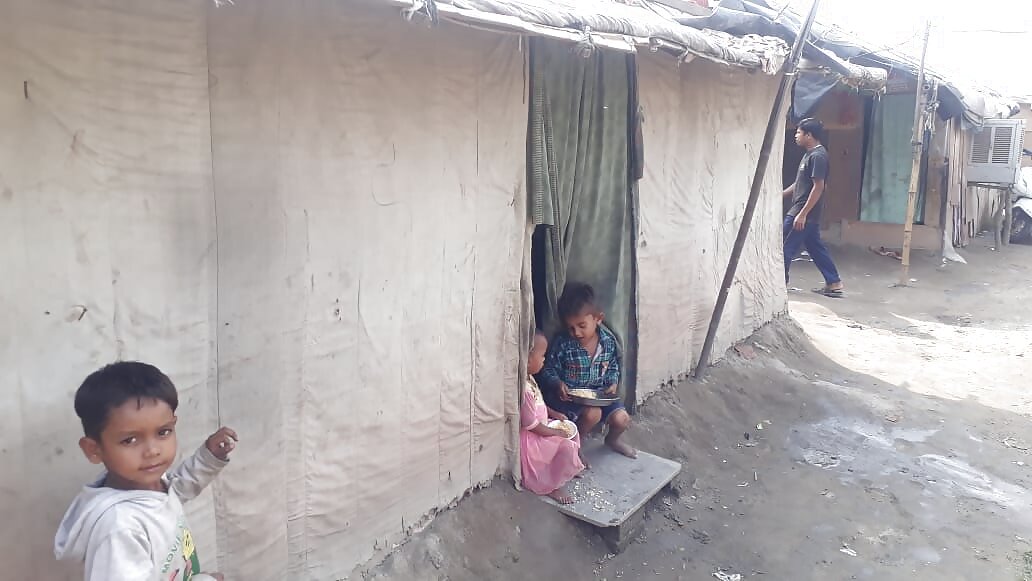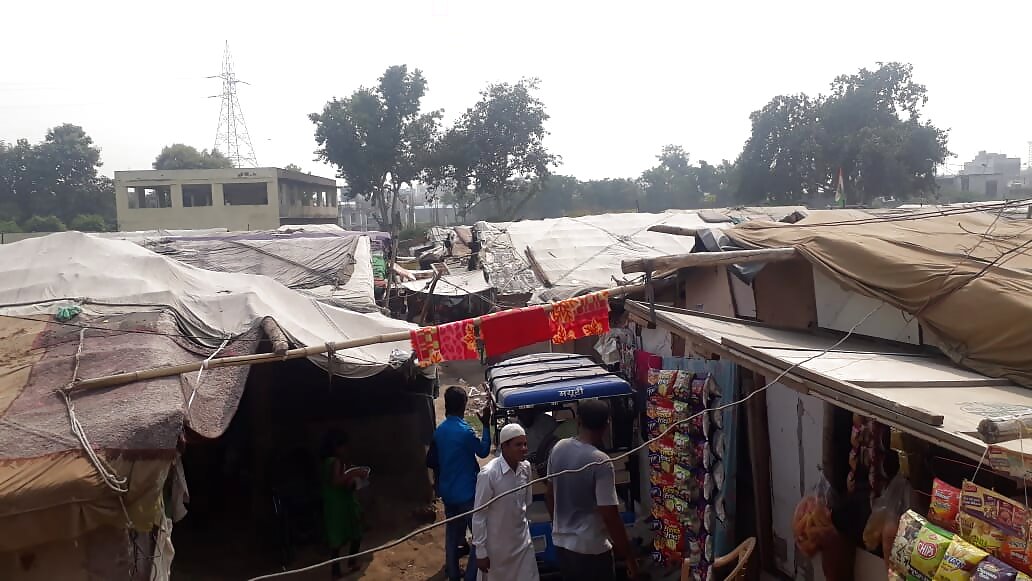
views
New Delhi: Rohingya living in the national capital are ready to die than be deported. Delhi Police, in a first, have circulated a national verification form and are collecting biometric details of every resident in the camp. The sudden identity drive by the police has caused fear of deportation within the refugee camp.
While such forms have been filled by the refugees before, certain sections of the new form are the main reason behind the hesitation of the refugees.
News18 earlier reported that the form starts with ‘1. Amme Myanmar Bengali’ and ‘2. Akrin Ame Myanmar Bengali’, which when translated means those filling the forms are prefixing their ‘name’ and ‘other name’ with the declaration that ‘I am a Bengali in Myanmar’.
Refugees fear that the section demolishes the community’s entire fight for identity in the state of Myanmar.

The form, accessed by News18, has a cover letter attached to it which states that the form is being issued by the Myanmar Embassy, which is a major cause of concern for many in the camp.
News18 reached out to local police officials in the area who informed that the instruction had come from the Ministry of Home Affairs. Emailed queries to the ministry did not illicit any response till the time of writing the copy.
The difference between the new form and the form filled last year is the text mentioned in Burmese along with English translation. While this can be argued as “convenience of understanding the form better”, the very first point while filling the details has worried the refugees further.
As if the fear triggered due to the form was any less, authorities now also want biometric details of the inhabitants.
“Police officials have told us that they will come on Sunday evening to record our biometric details. The police officials have very politely told us that this will not be used to deport us but we don’t believe it,” said several refugees in the camp.
Why the fear?
Memories of murder, rape and political subjugation are still fresh in the minds of every individual living in the refugee camp in Delhi. Every family in the camp has at least one member who was killed back in Myanmar by state-run forces.
“My brother was killed in front of me. Army personnel had surrounded our entire village with guns in their hands. They then set fire to our homes. Once we ran out, they started shooting. I remember when I ran with my two-year old son in my arms, I did not even have clothes on me. Do you expect us to go back to that country?” said 62-year-old Jamim Alam, who the inhabitants consider their leader in the camp. Alam runs a grocery store leading up to the camp.

Alam further narrates experiences of discrimination where the Myanmar government came up with laws because of which Muslims had to deposit Rs 5 lakh in order to get married and were handed passports that did not let them travel abroad for medical needs.
Another reason for the fear is the fact India deported seven Rohingya asylum seekers who had entered the country “illegally” in 2012 on October 5, 2018. The Supreme Court allowed the deportation as the government told the Court that Myanmar had accepted the Rohingya as their citizens and has agreed to take them back. After the genocidal attack on Rohingya in Rakhine state of Myanmar on August 2017, which triggered the massive exodus of Rohingya asylum seekers to Bangladesh, this is the first instance of deportation of Rohingya back to Myanmar.
The deportation came hours after India's Supreme Court refused to intervene in a plea by defence lawyer Prashant Bhushan to allow them to remain in the country.
Central decisions
The Indian government had asked states to identify members of the Rohingya refugee community, record their biometric details and report them to the central administration.
"Advisories have been issued to states. They need to identify the Rohingyas, take their biometrics and send us a report. The [central government] will initiate action through diplomatic channels with Myanmar and get it resolved," Home Minister Rajnath Singh said recently.
“Kill us. Bomb our camp or poison all of us. But don’t send us back forcefully. At least do a fact check of the situation there before pushing us back in hell. We know for a fact that the situation is worse in Myanmar than when we had fled,” said Abdullah, an e-rickshaw driver in Delhi, a member of the community.
An estimated 40,000 Rohingya, a mostly Muslim minority, live in India having fled persecution in Buddhist-majority Myanmar over the years.

Minister of state for Home Affairs, Kiren Rijiju in August told the Indian parliament that the Rohingya were illegal immigrants.
“We know this, Rohingya are linked with wrong and illegal activities,” Rijiju had said
Rohingya men in the camp, who mostly earn a living as day-wage labourers, in-house grocery stores and rickshaw drivers, reject the allegations.
“I work the entire day. I drive the e-rickshaw. My wife collects wood and then somehow we are able to feed our families. Do you think we are terrorists?” said Abdullah pointing towards logs of wood.
In February 2017, at a Rohingya refugee camp in the Hindu-dominated Jammu region, billboards were put up with messages such as "Wake up Jammu, Rohingyas and Bangladeshis quit Jammu".
Less than a month later, Jammu's Chamber of Commerce and Industries issued an ultimatum to the state government and threatened to "identify and kill" Rohingya if they were not deported soon.


















Comments
0 comment